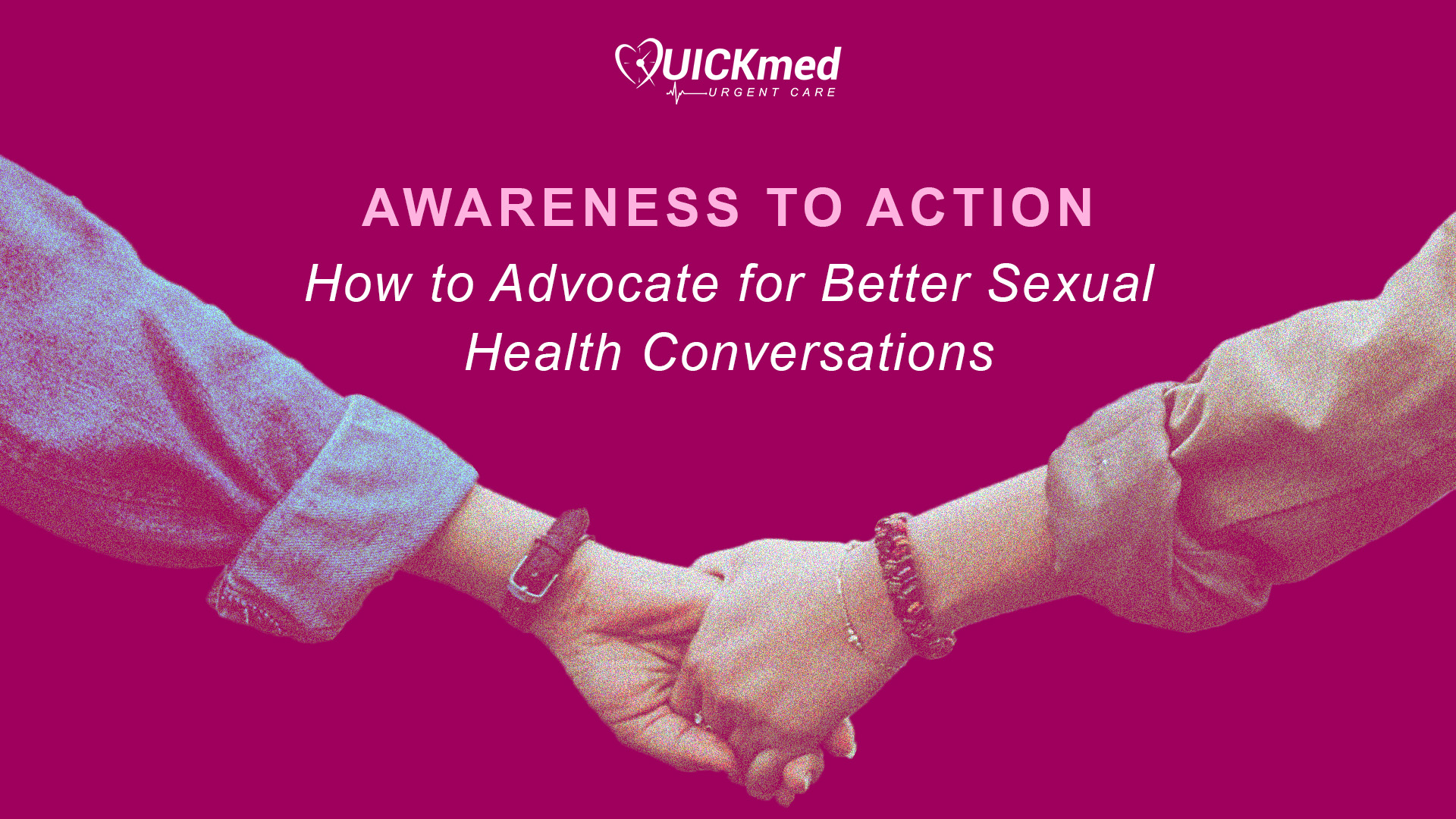From Awareness to Action: How to Advocate for Better Sexual Health Conversations

Talking about sexual health can feel uncomfortable—but avoiding the conversation does more harm than good. Stigma, misinformation, and lack of education prevent people from getting tested, seeking treatment, or even understanding their own health.
If you’ve ever felt frustrated by how little people know about STDs, UTIs, and testing, you have the power to change that. Whether it’s through open discussions, sharing resources, or simply normalizing routine testing, you can help create a culture of awareness and action.
Why We Need More Open Conversations About Sexual Health
Even though sexual health is a major part of overall well-being, many people avoid discussing it. Why?
🚫 Embarrassment – People worry about being judged for asking questions or getting tested.
🚫 Lack of education – Many schools don’t teach comprehensive sexual health, leaving people uninformed.
🚫 Fear of results – Some avoid testing because they’re afraid of what they might find out.
But hiding from the topic doesn’t make the risks go away. In fact, silence fuels stigma and misinformation. That’s why advocacy is so important.
How You Can Advocate for Better Sexual Health Conversations
Even if you’re not a health professional, you can be a voice for change. Here’s how:
1. Start With Your Circle
Normalize sexual health conversations within your friend group, family, and relationships.
✔ Casual check-ins – “Hey, when was the last time you got tested?” should be as normal as asking, “Have you been to the dentist lately?”
✔ Myth-busting – Share facts when you hear misinformation, like “Did you know most STDs don’t have symptoms?”
✔ Encourage testing – Let people know that at-home testing makes it easy, private, and stress-free.
2. Use Social Media for Good
Social media is a powerful tool to break stigmas and spread awareness.
✔ Share reliable articles, infographics, and statistics about STD & UTI prevention.
✔ Post your thoughts about why testing should be normalized.
✔ Engage with sexual health advocacy pages and help amplify their message.
Even one post could encourage someone to get tested.
3. Support Policies That Expand Access to Testing
Many communities still lack easy, affordable access to STD testing. You can help by:
✔ Supporting organizations that provide free or low-cost testing.
✔ Advocating for better sex education in schools.
✔ Encouraging workplaces to offer sexual health resources.
Change starts with awareness, but it leads to action.
4. Lead by Example
One of the most powerful ways to influence others is through your own actions.
✔ Get tested regularly and talk about it openly.
✔ If a friend is nervous about testing, offer to do it together (virtually or in person).
✔ Show that testing is just another form of self-care—not something to be ashamed of.
Spotlight: Influential Advocates Breaking the Stigma
Many admired individuals have used their platforms to promote sexual health awareness and encourage open conversations:
- Magic Johnson: The former NBA star publicly announced his HIV-positive status in 1991, transforming into a prominent advocate for HIV/AIDS awareness and prevention.
- Rihanna: In 2014, the singer became an ambassador for MAC Cosmetics’ Viva Glam campaign, raising over $50 million for the MAC AIDS Fund to support those affected by HIV/AIDS.
- Charlie Sheen: The actor’s public disclosure of his HIV-positive status led to a significant increase in public interest and testing, referred to as the “Charlie Sheen Effect,” highlighting the importance of awareness. This was one of the greatest public health awareness moment recently for HIV.
- Prince Harry: Committed to continuing Princess Diana’s work in eradicating HIV stigma, he publicly took a HIV test in Barbados alongside Rihanna in 2016 to raise awareness. More recently, he has urged the public to “know their status” during National HIV Testing Week.
These individuals (and so many more) demonstrate that discussing sexual health openly can lead to greater awareness, reduced stigma, and a more informed public.
Final Thoughts: Your Voice Matters
Sexual health conversations shouldn’t be awkward—they should be as normal as talking about mental health, diet, or fitness. The more we talk about it, the easier it becomes for others to take action.
Ready to Take the First Step?
📦 Order an at-home STD & UTI test today—and be part of the movement toward better sexual health.
Don’t Forget to Share This Post!

